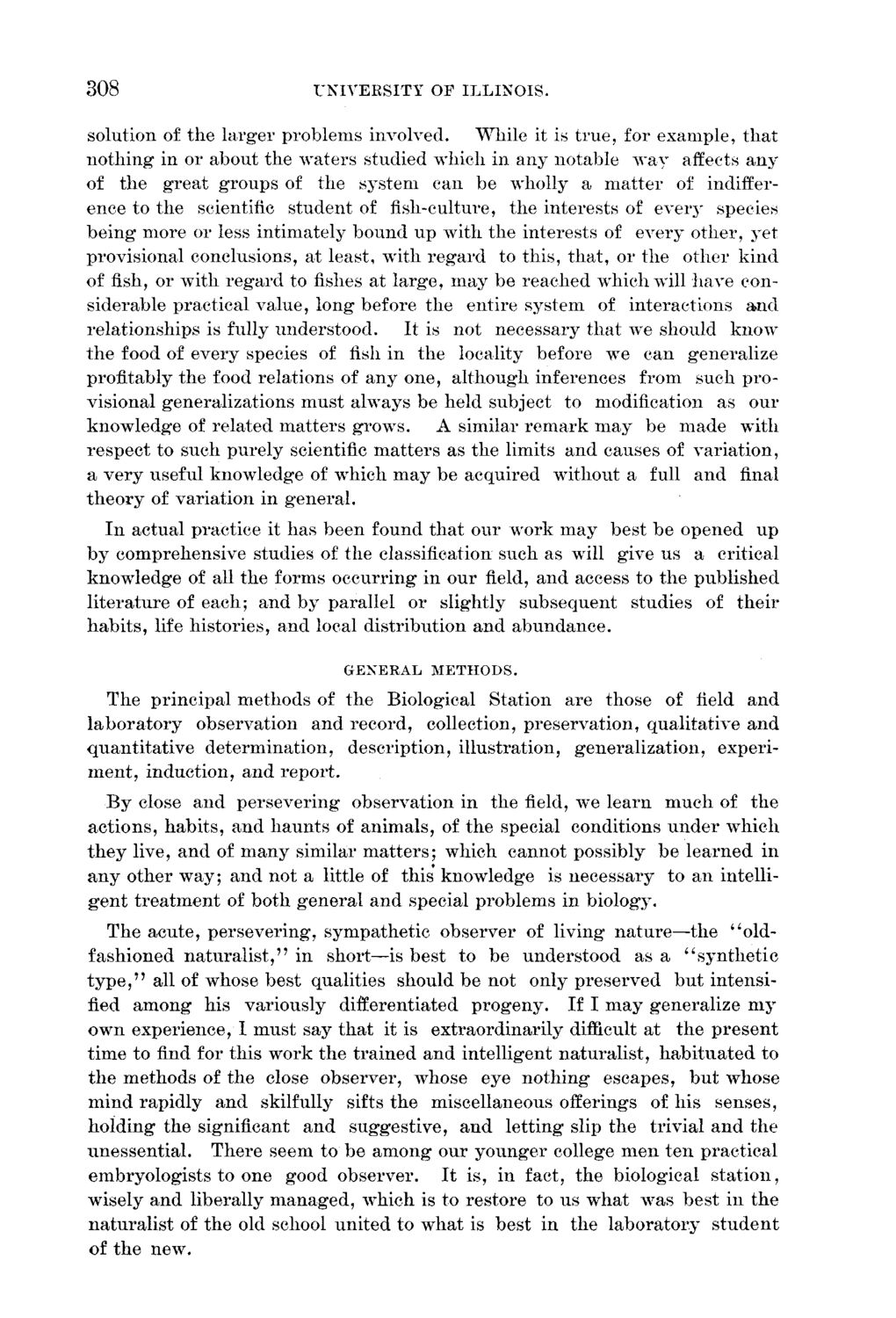| |
| |
Caption: Board of Trustees Minutes - 1896
This is a reduced-resolution page image for fast online browsing.

EXTRACTED TEXT FROM PAGE:
308 UNIVERSITY OF ILLINOIS. solution of the larger problems involved. While it is true, for example, that nothing in or about the waters studied which in any notable way affects any of the great groups of the system can be wholly a matter of indifference to the scientific student of fish-culture, the interests of every species being more or less intimately bound up with the interests of every other, yet provisional conclusions, at least, with regard to this, that, or the other kind of fish, or with regard to fishes at large, may be reached which will have considerable practical value, long before the entire system of interactions and relationships is fully understood. It is not necessary that we should know the food of every species of fish in the locality before we can generalize profitably the food relations of any one, although inferences from such provisional generalizations must always be held subject to modification as our knowledge of related matters grows. A similar remark may be made with respect to such purely scientific matters as the limits and causes of variation, a very useful knowledge of which may be acquired without a full and final theory of variation in general. In actual practice it has been found that our work may best be opened up by comprehensive studies of the classification such as will give us a critical knowledge of all the forms occurring in our field, and access to the published literature of each; and by parallel or slightly subsequent studies of their habits, life histories, and local distribution and abundance. GENERAL METHODS. The principal methods of the Biological Station are those of field and laboratory observation and record, collection, preservation, qualitative and quantitative determination, description, illustration, generalization, experiment, induction, and report. By close and persevering observation in the field, we learn much of the actions, habits, and haunts of animals, of the special conditions under which they live, and of many similar matters; which cannot possibly be learned in any other way; and not a little of this knowledge is necessary to an intelligent treatment of both general and special problems in biology. The acute, persevering, sympathetic observer of living nature—the "oldfashioned naturalist," in short—is best to be understood as a "synthetic t y p e , " all of whose best qualities should be not only preserved but intensified among his variously differentiated progeny. If I may generalize my own experience, I must say that it is extraordinarily difficult at the present time to find for this work the trained and intelligent naturalist, habituated to the methods of the close observer, whose eye nothing escapes, but whose mind rapidly and skilfully sifts the miscellaneous offerings of his senses, holding the significant and suggestive, and letting slip the trivial and the unessential. There seem to be among our younger college men ten practical embryologists to one good observer. It is, in fact, the biological station, wisely and liberally managed, which is to restore to us what was best in the naturalist of the old school united to what is best in the laboratory student of the new.
| |